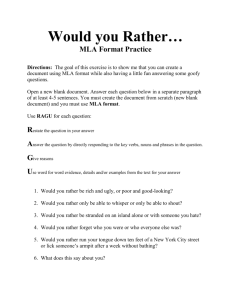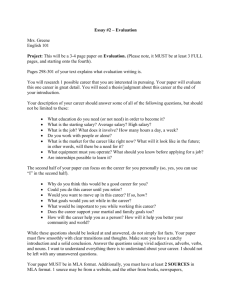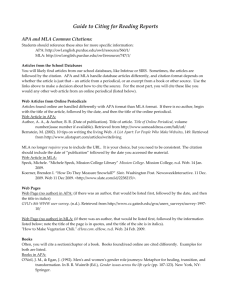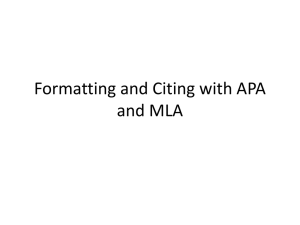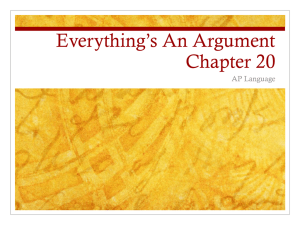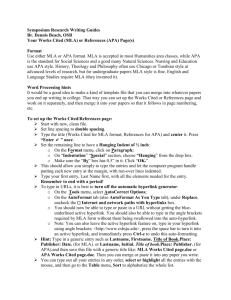documenting references in mla and apa style
advertisement
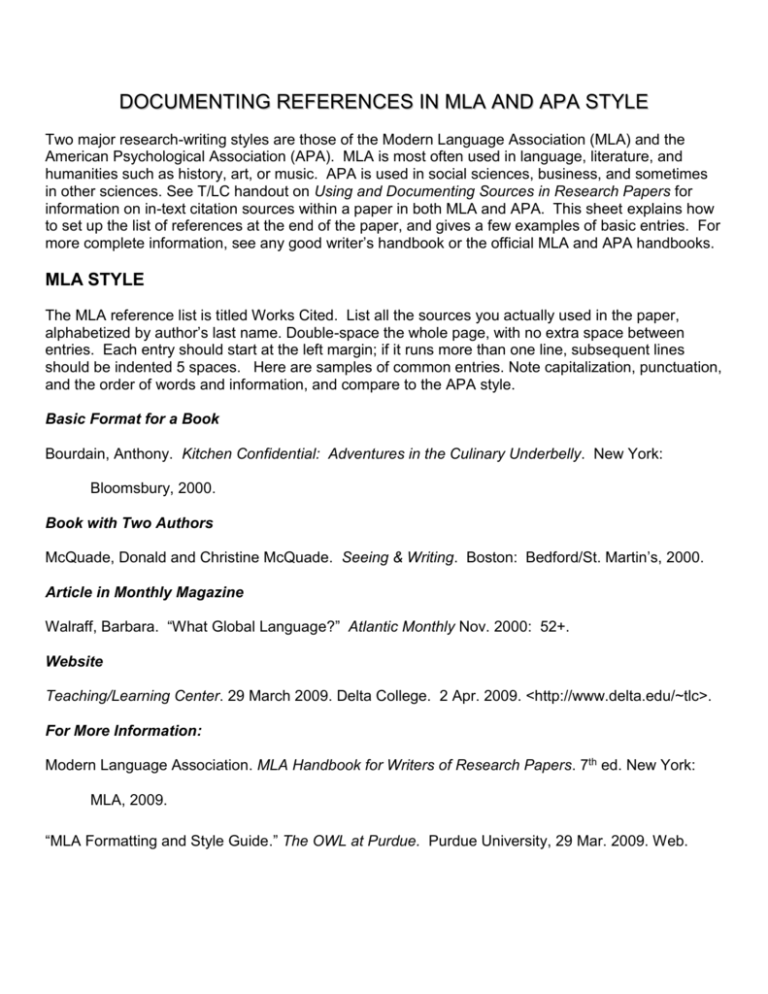
DOCUMENTING REFERENCES IN MLA AND APA STYLE Two major research-writing styles are those of the Modern Language Association (MLA) and the American Psychological Association (APA). MLA is most often used in language, literature, and humanities such as history, art, or music. APA is used in social sciences, business, and sometimes in other sciences. See T/LC handout on Using and Documenting Sources in Research Papers for information on in-text citation sources within a paper in both MLA and APA. This sheet explains how to set up the list of references at the end of the paper, and gives a few examples of basic entries. For more complete information, see any good writer’s handbook or the official MLA and APA handbooks. MLA STYLE The MLA reference list is titled Works Cited. List all the sources you actually used in the paper, alphabetized by author’s last name. Double-space the whole page, with no extra space between entries. Each entry should start at the left margin; if it runs more than one line, subsequent lines should be indented 5 spaces. Here are samples of common entries. Note capitalization, punctuation, and the order of words and information, and compare to the APA style. Basic Format for a Book Bourdain, Anthony. Kitchen Confidential: Adventures in the Culinary Underbelly. New York: Bloomsbury, 2000. Book with Two Authors McQuade, Donald and Christine McQuade. Seeing & Writing. Boston: Bedford/St. Martin’s, 2000. Article in Monthly Magazine Walraff, Barbara. “What Global Language?” Atlantic Monthly Nov. 2000: 52+. Website Teaching/Learning Center. 29 March 2009. Delta College. 2 Apr. 2009. <http://www.delta.edu/~tlc>. For More Information: Modern Language Association. MLA Handbook for Writers of Research Papers. 7th ed. New York: MLA, 2009. “MLA Formatting and Style Guide.” The OWL at Purdue. Purdue University, 29 Mar. 2009. Web. American Psychological Association Style The APA reference list is titled References. List all the sources you actually used in the paper, alphabetized by author’s last name. Single-space each entry, and double-space between entries. Each entry should start at the left margin; if it runs more than one line, subsequent lines should be indented 5 spaces. Here are samples of common entries. Note that APA uses less capitalization, different punctuation, and a different order of words and information then MLA; compare to MLA formats. Basic Format for a Book Bourdain, A. (2000). Kitchen confidential: adventures in the culinary underbelly. New York: Bloomsbury. Book with Two Authors McQuade, D., & McQuade, C. (2000). Seeing & writing. Boston: Bedford/St. Martin’s. Article in Monthly Magazine Walraff, B. (2000, November.) What global language? Atlantic monthly, 286: 52-66. Website Dewey, E. (2000). News. Teaching/Learning Center. Retrieved from http://www.delta.edu/~tlc For More Information American Psychological Association. (2009). Publication manual of the American Psychological Association. (6th ed.) Washington, D.C.: American Psychological Association. APA formatting and style guide. (2009). The OWL at Purdue. Retrieved from http://owl.english.purdue.edu/owl/resource/560/01/ © 2009 Teaching/Learning Center, Delta College, University Center, MI 48710
